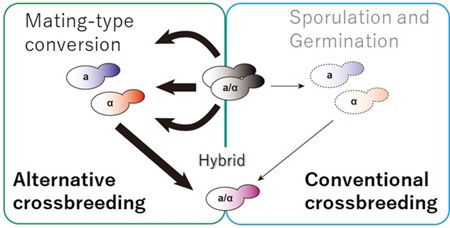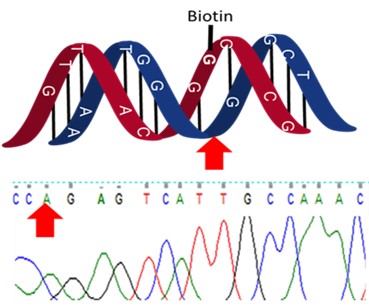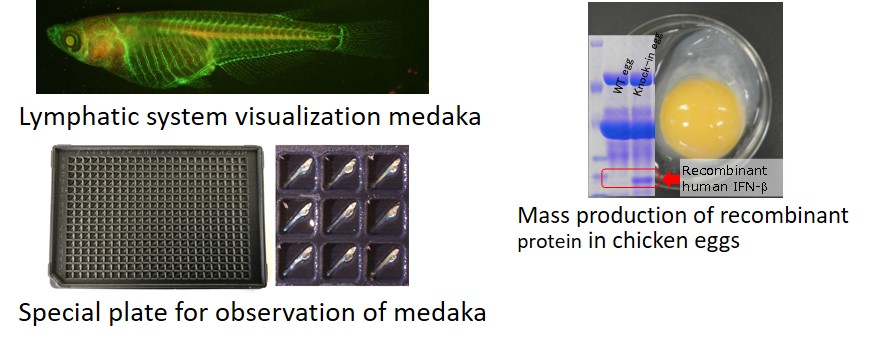Advanced Genome Design Research Group
Introduction
Advanced Genome Design Research Group aims at developing eminent biotechnology based on studies of microorganisms and higher organisms. Specifically, we are developing new genome editing technology, genome-wide DNA methylation analysis technology, bio-manufacturing and bio-control using microorganisms, and industrial technology using genome edited small fish (medaka and zebrafish) and poultry.
Development of new genome editing method for medical, environment, agriculture, and industry
We analyze a novel evolutionary mechanism "self-genome editing mechanism, PODiR system" revealed from the analysis of the mechanism of antibiotic resistance acquisition of microorganisms, and develop a new domestic genome editing method that can modify the genome to the intended sequence. Using this technique, we will create new useful organisms (breeding), propose methods to control nosocomial infection-causing bacteria and antibiotic-resistant bacteria, develop new antibacterial drugs, and establish methods for treating genetic diseases.

Promotion of microbial gene function and potential to produce functional chemicals
It is possible to improve quality and quantity of products such as food and beverages by breeding superior yeast strains. In cross-breeding, a hybrid cell is produced by artificial mating of differently-originated a- and α-cells. We succeeded to dramatically increase the efficiency of hybrid cell generation. Our approach can be applied to yeast strains those have been hard targets in cross-breeding. To generate superior yeast strains with high industrial value, we will further advance our technology.

Development of the analytical method for DNA methylation dynamics in genome-edited organisms
We are developing a genome-wide analysis for the changes of DNA methylation in genome-edited cells and organisms. We focus on the guanine and abasic sites in DNA, which are the intermediates of the demethylcytosine reaction, and aim to develop a biotinylation method for the guanine bases at abasic sites and to establish an NGS analysis method for the guanine-abasic sites in genomic DNA.

Industrial applications of genome edited higher organisms
We are aiming to develop industrial technologies using genome edited higher organisms including small fish (medaka and zebrafish) and poultry. Taking advantage of transparency of genetically modified small fish, we are developing a new drug discovery screening system. Furthermore, we developed genome edited chickens which produce eggs lacking an egg white allergen and eggs containing abundant valuable recombinant proteins in the albumen.

Fish-microbe interactions and biocontrol measures for fish bacterial diseases
We are aiming to elucidate interactions between microbes and the host fish. We are also developing biocontrol measures for fish diseases utilizing commensal fish bacteria.

List of Publications
|2024|2023|2022|2021|2020|2019-2015|
Staff:
-
Nobuo Fukuda(Research Group Leader)
-
Hideaki Maseda
-
Chun Wu
-
Mio Takeuchi
-
Takehiro Mukae